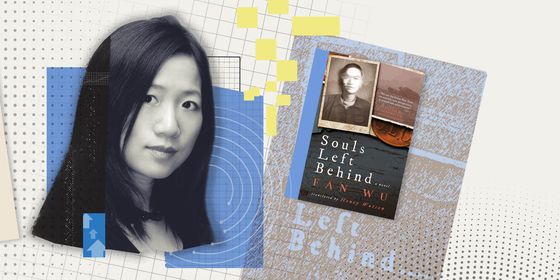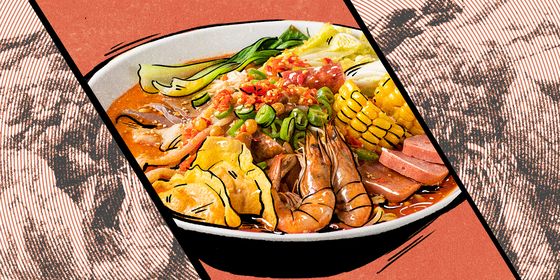A character that can move heaven and earth
When facing unfair treatment or false accusations, Chinese speakers often use a common proverb, “我比窦娥还冤 (Wǒ bǐ Dòu É hái yuān, I am more wronged than Dou E)”—comparing themselves to the tragic heroine from the play The Injustice to Dou E that Moved Heaven and Earth (《感天动地窦娥冤》) by Yuan dynasty (1206 – 1368) playwright Guan Hanqing (关汉卿).
Losing her mother at a young age and sold by her father to a woman called Granny Cai at age 7, Dou E was later framed by a local thug for poisoning his father, and was tortured and sentenced to death by the corrupt magistrate. Before she was beheaded, Dou E prophesied three supernatural signs that would prove her innocence: that her blood would stain a white cloth above the executioner’s block, without a drop spilling on the ground; that snow would fall in midsummer; and that her city would suffer from drought for three years. Heaven was apparently moved by Dou E’s plight, as all three events came to pass after her death.
In modern Chinese, the character 感 (gǎn) means “to feel,” though the play’s title uses its other, more ancient meaning, “to move emotionally.” The Analytical Dictionary of Chinese Characters (《说文解字》), one of the earliest Chinese dictionaries, defines 感 as “to touch one’s heart,” noting the radical 心 (xīn) marks the meaning. The upper part of the character, 咸 (xián), approximated the pronunciation, which has changed since that time. But 感’s earliest appearance, which is similar to its modern form, only with a more complex 心 radical, can be traced back to bronze inscriptions in the Warring States period (475 – 221 BCE).
The original meaning of 感 is still in use now. Dou E’s tragic life and unjust death have 感动 (gǎndòng, moved) viewers throughout the centuries since the play came out. Those who felt 感伤 (gǎnshāng, sentimental) about Dou E’s sufferings might 感慨 (gǎnkǎi, lament) and 感叹 (gǎntàn, sigh) over her dreadful fate, while others who were enraged by the patriarchy or incompetent justice system in the story might describe their feeling as 感愤 (gǎnfèn, indignation). If all of these sentiments well up in your heart and intertwine, you can express them with the idiom 百感交集 (bǎigǎn jiāojí); while any takeaways gained from the story can be called 感悟 (gǎnwù, realization).
感情 (gǎnqíng, emotions) is another common word that uses 感 to refer to feelings, especially in interpersonal relationships. 动感情 (dòng gǎnqíng), literally “to move one’s emotions,” means one is developing feelings for another person, and to bond with someone is called 联络感情 (liánluò gǎnqíng), which literally translates to “putting emotions in contact.”
The character can also refers to the senses, or 感觉 (gǎnjué). 感 can be paired with many adjectives to refer to different senses, from pleasant ones such as 美感 (měigǎn, sense of beauty) and 快感 (kuàigǎn, sense of pleasure) to the more complicated feelings such as 优越感 (yōuyuègǎn, sense of superiority), 正义感 (zhèngyìgǎn, sense of justice), and 负罪感 (fùzuìgǎn, guilt).
Turning from the heart to the body, to be infected with disease is called 感染 (gǎnrǎn), and if one is unfortunate enough to catch Covid-19, the phrase is 感染新冠肺炎 (gǎnrǎn xīnguān fèiyán). To 感染风寒 (gǎnrǎn fēnghán) means to catch a cold, which is caused by frigid wind according to traditional Chinese medicine. In modern Chinese, the common cold is called 感冒 (gǎnmào).
Colloquially, one can also use 感冒 to express 感兴趣 (gǎn xìngqù), which means being interested in something or someone. Both “我感冒了 (Wǒ gǎnmào le, I have a cold)” and “我不感冒 (Wǒ bù gǎnmào, I’m not interested)” can be used as an excuse to turn down an invitation. When the lack of interest worsens into dislike, the word is 反感 (fǎngǎn).
To beginners in Mandarin, an important phrase is “非常感谢你 (fēicháng gǎnxiè nǐ, thank you very much)!” 感 is fittingly found in several words that mean “to express gratitude,” such as 感激 (gǎnjī), 感恩 (gǎn’ēn), 感谢 (gǎnxiè), and 感念 (gǎnniàn)—all of which should come from the heart.
On the Character: 感 is a story from our issue, “Lessons For Life.” To read the entire issue, become a subscriber and receive the full magazine.













